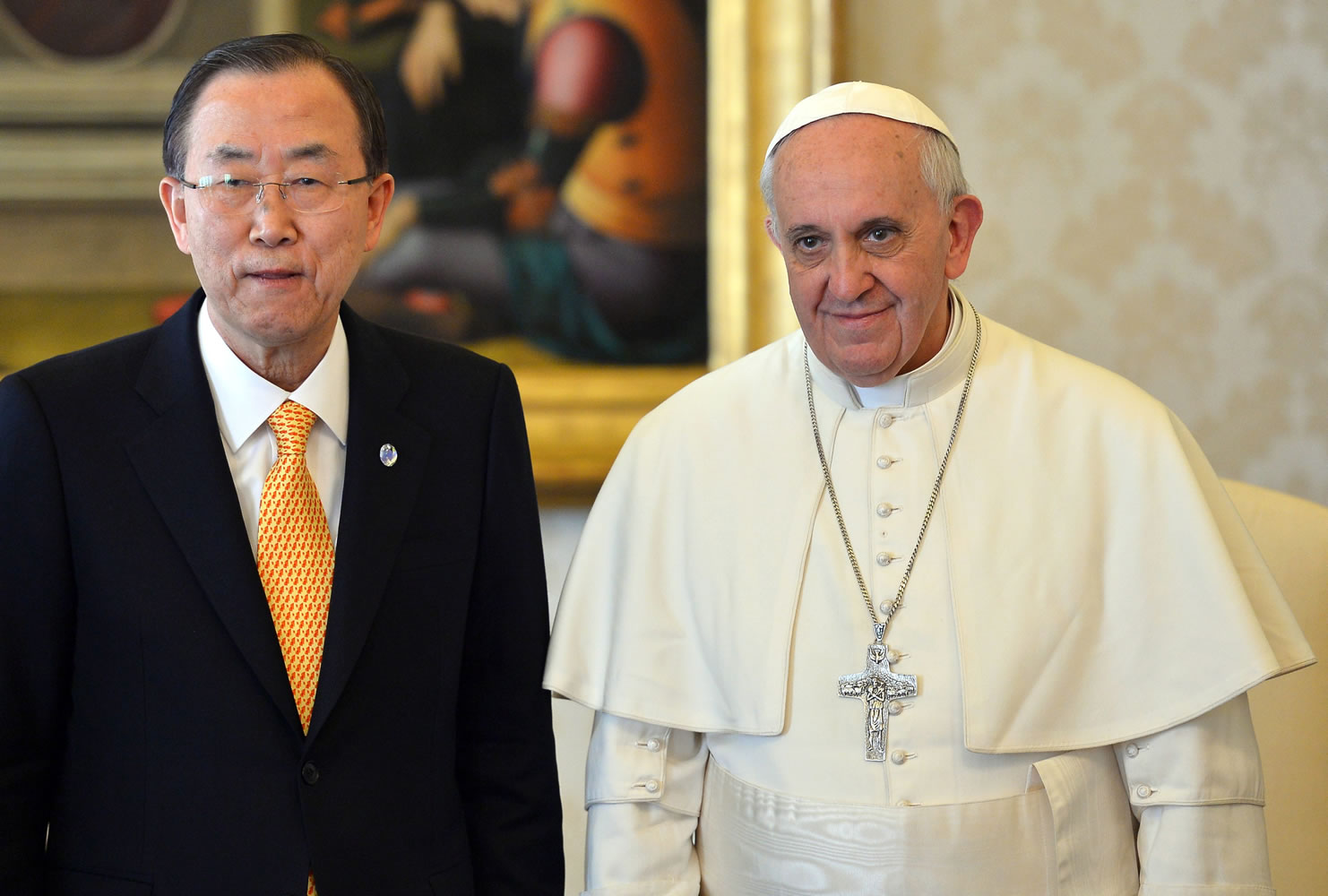VATICAN CITY — Pope Francis named eight cardinals from around the globe Saturday to advise him on running the Catholic Church and reforming the Vatican bureaucracy, marking his first month as pope with a major initiative to reflect the universal nature of the church in key governing decisions.
The advisory panel includes only one current Vatican official. The rest are cardinals from North, Central and South America, Africa, Asia, Europe and Australia. Many have been outspoken in calling for a shake-up of the Vatican bureaucracy, which was last reformed 25 years ago, while others have tried to clean up the church from sexually abusive priests.
In the run-up to the conclave that elected Francis the first Latin American pope one month ago, many cardinals demanded the Vatican be more responsive to their needs on the ground and said the Holy See bureaucracy itself must be overhauled. Including representatives from each continent in a permanent advisory panel to the pope would seem to go a long way toward answering those calls.
In its announcement Saturday, the Vatican said Francis got the idea to form the advisory body from the pre-conclave meetings where such complaints were aired. “He has formed a group of cardinals to advise him in the governing of the universal church and to study a revision of the apostolic constitution Pastor Bonus on the Roman Curia,” the statement said.
Pope John Paul II issued Pastor Bonus in 1988, and it functions effectively as the blueprint for the administration of the Holy See, known as the Roman Curia, and the Vatican City State. The document metes out the work and jurisdictions of the congregations, pontifical councils and other offices that make up the governance of the Catholic Church.
A reform of the Vatican bureaucracy has been demanded for years, given that both John Paul and Benedict XVI essentially neglected in-house administration of the Holy See in favor of other priorities. But the calls for change grew deafening last year after the leaks of papal documents exposed petty turf battles within the Vatican bureaucracy, allegations of corruption in the running of the Vatican city state, and even a purported plot by senior Vatican officials to out a prominent Catholic as gay.
Francis’ advisory group will meet in its inaugural session Oct. 1-3, though Francis is already in contact with the group’s members, the Vatican said. No other dates were announced.
The Vatican spokesman, the Rev. Federico Lombardi, stressed that the cardinals are a consultative body, not a decision-making one, and that they won’t take the place of the Vatican bureaucracy.
The church is growing and counts most of the world’s Catholics in the southern hemisphere, while it’s shrinking in Europe. Yet the Vatican and the 200-strong College of Cardinals, traditionally the pope’s primary advisers, remain heavily European.
Lombardi said the fact that Francis selected cardinals from every continent indicated he wanted to reflect the universal nature of the church in Vatican decision-making.
“The Roman Curia retains all its fundamental functions helping the pope in the daily governance of the universal church,” Lombardi told Vatican Radio.
The members of the panel include Italian Cardinal Giuseppe Bertello, president of the Vatican city state administration — a key position that oversees, among other things, the Vatican’s profit-making museums. The non-Vatican officials include Cardinals Francisco Javier Errazuriz Ossa, the retired archbishop of Santiago, Chile; Oswald Gracias, archbishop of Mumbai, India; Reinhard Marx, archbishop of Munich and Freising, Germany; Laurent Monsengwo Pasinya, archbishop of Kinshasa, Congo; Sean Patrick O’Malley, the archbishop of Boston; George Pell, archbishop of Sydney, Australia; and Oscar Andrés Rodríguez Maradiaga, archbishop of Tegucigalpa, Honduras, who will be coordinator.
Monsignor Marcello Semeraro, bishop of Albano, Italy will be the panel secretary.
O’Malley, a Capuchin friar, has spent his career cleaning up churches from sexually abusive priests. Pell was outspoken in the run-up to the conclave about the need for reform in the bureaucracy. Maradiaga heads the church’s Caritas International charity federation and is a rare moderate in the College of Cardinals who hasn’t shied from criticizing the failings of the curia.
In theory, all popes have cardinals at their disposal to serve as advisers; advising the pope is a cardinal’s main job aside from voting in conclaves. But neither John Paul nor Benedict made frequent use of their cardinal advisers, in part because they were so far away and numbered more than 200.



